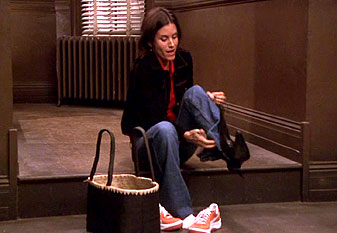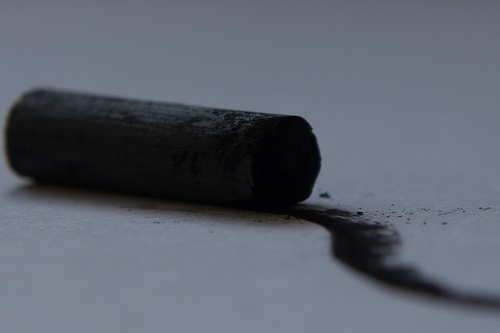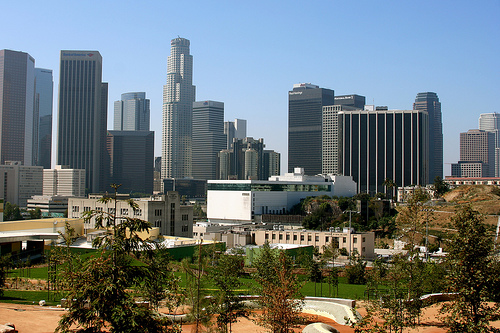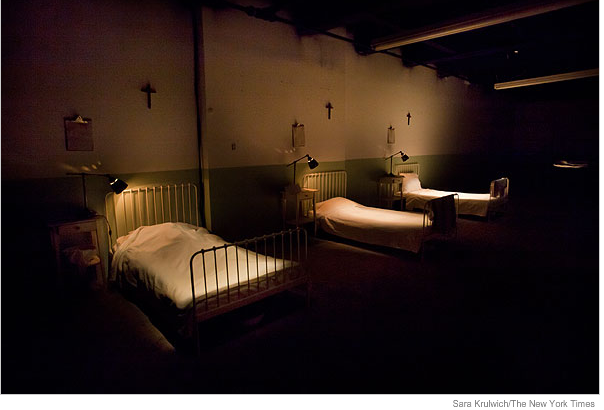The one with the boots
 At an old job I had a sharply-dressed coworker who let me tag along to sample sales. At one, held at an old bank in midtown with ornate architecture and a world-class view of the Empire State Building, we walked up and down rows of shoes, their boxes open, tissue paper raining down. It was winter and we carried our bulky coats and kept a close eye on our Blackberrys. We were on the clock.
C.’s style of dress was city chic but approachable, punctuated with a range of heeled boots I always coveted. So when we shopped together that cold day I must have been subconsciously inspired by her and my eyes landed on a pair of structured ankle boots I knew I had to have. The heel was a little taller than I normally wear – I’d learned my lesson by then after years of crossing the river by train and bus in heels that left their marks – but it was a wedge, and the boot was lined with buckles that served no utility but screamed confidence.
At an old job I had a sharply-dressed coworker who let me tag along to sample sales. At one, held at an old bank in midtown with ornate architecture and a world-class view of the Empire State Building, we walked up and down rows of shoes, their boxes open, tissue paper raining down. It was winter and we carried our bulky coats and kept a close eye on our Blackberrys. We were on the clock.
C.’s style of dress was city chic but approachable, punctuated with a range of heeled boots I always coveted. So when we shopped together that cold day I must have been subconsciously inspired by her and my eyes landed on a pair of structured ankle boots I knew I had to have. The heel was a little taller than I normally wear – I’d learned my lesson by then after years of crossing the river by train and bus in heels that left their marks – but it was a wedge, and the boot was lined with buckles that served no utility but screamed confidence.
I bought them. They were more than any other shoe I’d bought, ever.
When I wore them for the first time, the unthinkable happened: they hurt. Like, badly. Like The One with Monica’s Boots. I tried again, and then again. Both times I had to give up before I even left my apartment, switching into something that fit me properly.
So they went in a pile in the back of my closet, where I would occasionally spot them and wince. For years those boots stayed on my mind. I thought if I could just wear them one more time I'd break them in perfectly; I thought if I just wanted it enough, I could learn to withstand the pain. They moved with me from apartment to apartment, across two rivers, through a wedding, a baby. I still loved the look of them, and as my style evolved I realized they would fit me (aesthetically, anyway) even better now than they did when I bought them. So out of the closet they came. I was going to give them another try, dammit.
So I brought them into work one day last year, intent on wearing them, finally. I changed out of flats and buckled in, ready to take on the day (and with it, the world). But I guess I forgot that even though my style changed, my feet, alas, did not. The boots still hurt. They hurt so much I hobbled right back to my office and took them off. It took years, but they finally broke my of my will.
I’m back at work after a maternity leave and today I found those boots in a drawer. They're still beautiful, and they're certainly not doing anyone any good sitting in there. So tonight I’ll take them home and leave them on the stoop outside my apartment, which is the Brooklyn way of donating things we no longer need. I’ll think of C. when I do it, and of the job where I met her, the friends I made there; the way the city, the world, seemed so close to me then. How everything felt possible. How it all was possible.
But mostly I’ll be thinking of how good it feels, how free, to let go of things you’ve been carrying for years and have never really needed.



